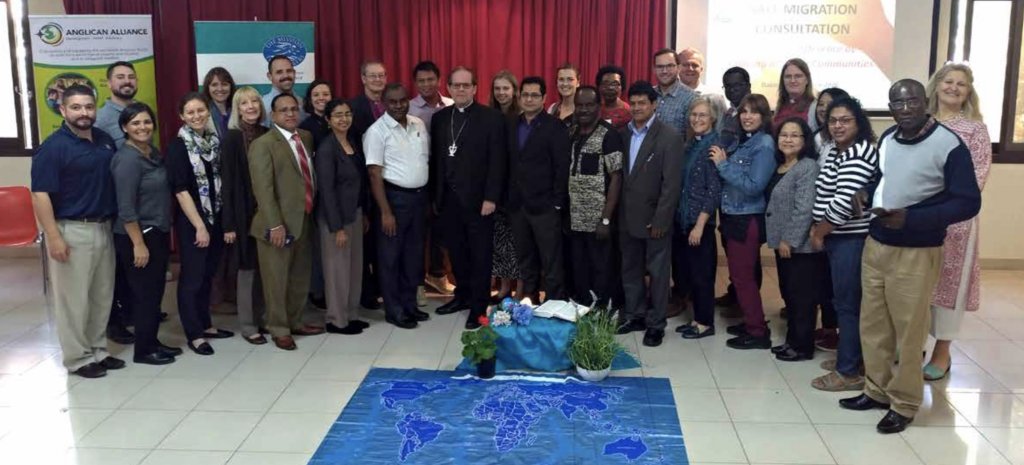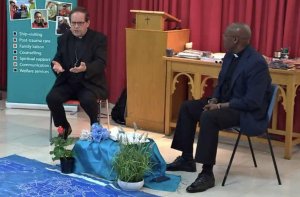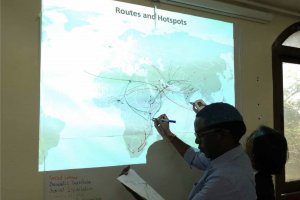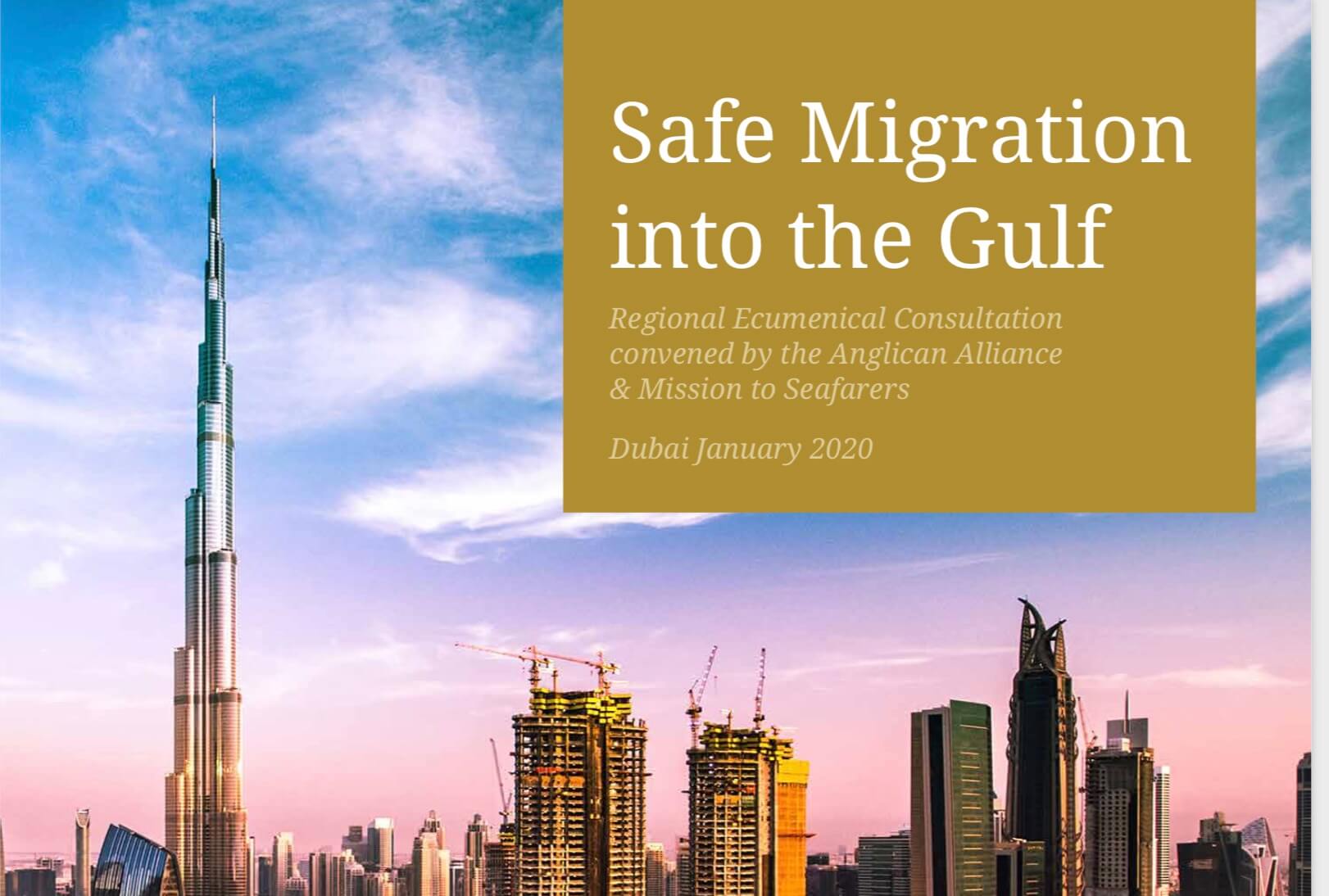Today, the Anglican Alliance is pleased to announce the launch of its report, Safe Migration into the Gulf. The report documents the consultation held earlier this year in Dubai and provides a rich source of information, case studies and reflections from the region on an issue that has the potential to cause enormous harm and suffering. As the Alliance’s Middle East facilitator, Joel Kelling, says, “The report is not only a reminder of what we did as a group, but also a guide to help a much wider audience understand the issues of safe migration, trafficking and modern slavery, and to help shape church responses to these issues”.
The consultation
The consultation was jointly convened by the Anglican Alliance and the Mission to Seafarers. Participants came from Anglican churches in the Episcopal Province of Jerusalem and the Middle East, as well as from churches in countries from which migrants come, including Pakistan, India, Bangladesh, the Philippines, Kenya and Uganda. The meeting was joined by ecumenical partners from the Gulf and other agencies working on the treatment and rights of potential and current migrant workers.

Participants in the Dubai consultation
In his foreword to the report, Archbishop Michael Lewis, President Bishop of the Province of Jerusalem and the Middle East, writes, “People have been on the move in search of better opportunities for themselves and their families throughout our history, and the Arabian peninsula has been a nexus of exchange between Africa, Asia and Europe for millennia.

Archbishop Michael Lewis speaking at the consultation
“In addition to understanding better the scourge of modern slavery and human trafficking, the consultation sought to connect the Church from sending countries with the Church in destination countries. This approach provided a more complete picture of the issues and enabled the sharing of knowledge, assets and resources to better inform potential migrants about their rights and what to expect. We have a responsibility as Christians to work together for the welfare and dignity of all people, and it is essential that we work across our denominations and between continents to support the vulnerable and encourage positive change in approaches to how people can migrate safely.”
What has come out of the consultation?
The consultation took place just before the COVID-19 pandemic hit. Although the context of migration has altered radically since then, the principles and practice discussed at the consultation have informed the activities of the regional community of practice, which was formed out of the consultation and which has continued through the uncharted territory of 2020. As Joel reflects,
“With the impacts of Coronavirus lockdowns, the consultation appears very timely, as it was a space where friendships were begun or strengthened. A spirit of fellowship was fostered that has carried over into the community of practice. Several times during the initial lockdowns affecting the countries of the Gulf, our group chat burst into action, and we were able to share both positive stories of how the Church was responding with loving service, and practical linking of capacity and resources between churches. As the community of practice has grown, it has been good to engage the wider Anglican presence in the Middle East, particularly with the increased need for support of migrant labourers in Lebanon following the explosion in Beirut in August”.
The wider picture
The Dubai consultation was the latest in a series of consultations organised by the Anglican Alliance, often in collaboration with The Salvation Army, which have taken place in multiple regions across the world to examine the issues of migration and human trafficking and how churches can respond effectively to promote safe migration and tackle exploitation and trafficking. While the contexts and scenarios may differ, the underlying drivers remain constant. Through these successive consultations the Anglican Alliance and The Salvation Army have developed an understanding of how the churches can best engage and respond, through a strategic Freedom Framework. The Freedom Framework and further information can be found on our human trafficking and modern slavery resource hub.
Final reflections on the report from Joel

Mapping migration routes
Commenting on the report’s launch, Joel said, “I’m really pleased that we have the report available for sharing and use both in the Middle East and the sending countries, and that its publishing at this point acts as a catalyst in the ongoing building of relationships and networks of support.
“I really hope that the report is a document that gets well-thumbed as a physical document, as well as wide circulation as a digital document. I hope it is read beyond the group of us who gathered in Dubai in January and deepens both diocesan and provincial understanding and capacity to respond to the issue of safe migration”.
Why does the Anglican Alliance care about safe migration and tackling human trafficking?
The Anglican Alliance exists to connect, equip and inspire the worldwide Anglican family to work for a world free of poverty and injustice and to safeguard creation. Human trafficking and modern slavery are not only clear injustices, but also outrages and crimes. There are an estimated 40.3 million victims of modern slavery across the world. They are some of the most vulnerable members of society and often remain unseen.

